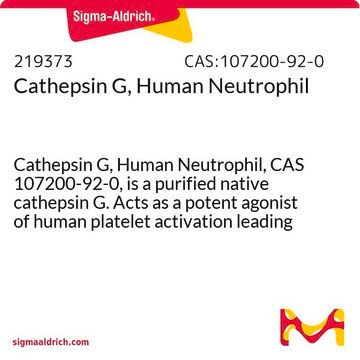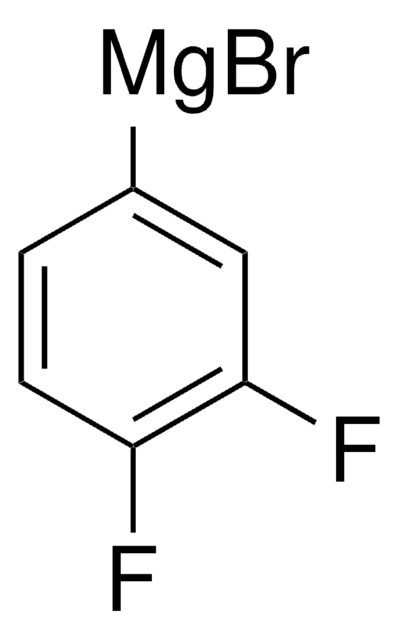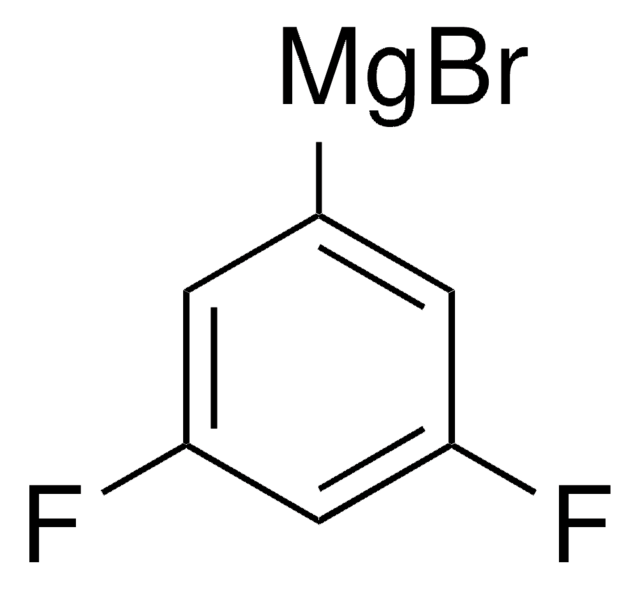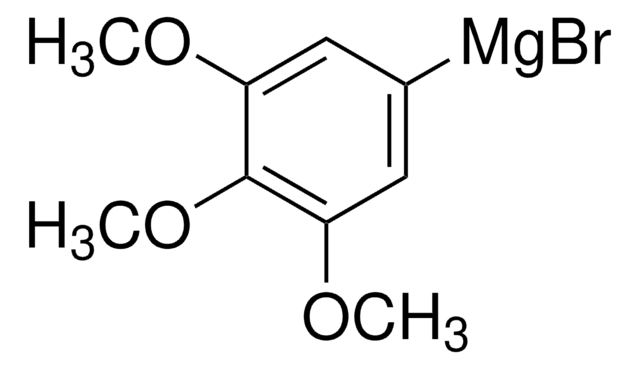221864
Potassium bromide
FT-IR grade, ≥99% trace metals basis
About This Item
Recommended Products
grade
FT-IR grade
Quality Level
vapor pressure
<0.01 mmHg ( 20 °C)
1 mmHg ( 795 °C)
Assay
≥99% trace metals basis
form
powder or crystals
technique(s)
FTIR: suitable
pH
5-6 (25 °C, 119 g/L)
mp
734 °C (lit.)
SMILES string
[K+].[Br-]
InChI
1S/BrH.K/h1H;/q;+1/p-1
Looking for similar products? Visit Product Comparison Guide
Related Categories
1 of 4
This Item | 561037 | 561029 | 680974 |
|---|---|---|---|
| density 0.975 g/mL at 25 °C | density 0.965 g/mL at 25 °C | density 0.971 g/mL at 25 °C | density 0.979 g/mL at 25 °C |
| concentration 0.3 M in THF | concentration 0.5 M in THF | concentration 0.5 M in THF | concentration 0.5 M in THF |
| storage temp. 2-8°C | storage temp. 2-8°C | storage temp. 2-8°C | storage temp. 2-8°C |
| bp 65 °C | bp 65 °C | bp 65 °C | bp - |
General description
Application
- Cerium(IV) ammonium nitrate (CAN) for synthesizing dibromides via alkene bromination.[2]
- Sodium perborate for synthesizing brominated anilines via oxidative bromination of unprotected aromatic amines.[3]
- Hydrochloric acid and hydrogen peroxide for the bromination of active methylene and methyne compounds with high chemoselectivity.[4]
Signal Word
Warning
Hazard Statements
Precautionary Statements
Hazard Classifications
Eye Irrit. 2
Storage Class Code
13 - Non Combustible Solids
WGK
WGK 1
Flash Point(F)
Not applicable
Flash Point(C)
Not applicable
Certificates of Analysis (COA)
Search for Certificates of Analysis (COA) by entering the products Lot/Batch Number. Lot and Batch Numbers can be found on a product’s label following the words ‘Lot’ or ‘Batch’.
Need A Sample COA?
This is a sample Certificate of Analysis (COA) and may not represent a recently manufactured lot of this specific product.
Already Own This Product?
Find documentation for the products that you have recently purchased in the Document Library.
Customers Also Viewed
Our team of scientists has experience in all areas of research including Life Science, Material Science, Chemical Synthesis, Chromatography, Analytical and many others.
Contact Technical Service









